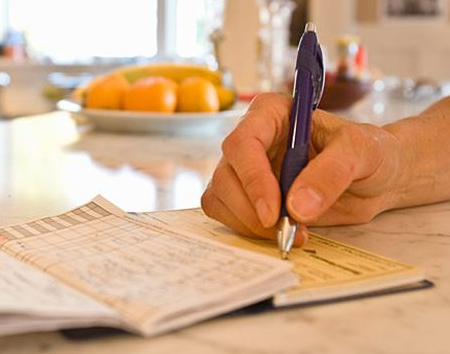
1) Overhaul Your Budget
Most people spend their money on things they don’t need or at least could live without. According to 24/7 Wall Street, “the average household spends more than $380 each year on tobacco products and smoking supplies… this average includes households where no one pays for tobacco products…” at 0.8% tobacco’s portion of the average household’s budget is larger than what Americans spend on fresh fruit and milk combined.
They also highlight another 0.8% spent on entertainment, 0.9% on alcohol, 1.3% on fees and admissions for sporting events, films, and concerts, 1.4% on vacation homes and hotels, 1.4% on pets, toys, hobbies, and playground equipment, 2.0% on cable TV, video game hardware, and movie players, 2% on gifts and 5.3% on eating out. So taken all together the average family spends 15.9% of their budget on discretionary items that could be eliminated (or drastically reduced) if they wanted to.
Take a look at your monthly budget and see how much you’re spending on things that aren’t necessities… like rent or utilities. Perhaps you are paying for a bigger cable package than what you really use or maybe that gym membership is gathering dust. You should easily be able to cut 5 percent out of your budget by getting rid of expenses you don’t really need, and then you can dedicate that money to a better purpose, such as retirement savings or paying down debt.
2) Bundle Products and Services
You can save money by getting more than one product or service from the same company, a practice called bundling. If you get your internet and TV service from different companies, by moving both to one provider you can easily save $20 or more per month by bundling. You also can bundle insurance products such as home and auto insurance and save even more.
3) Boost Your Credit
Many people aren’t aware that their credit score can save them money. The higher your credit score is, the lower rates you will get on credit cards and loans, which will save you money on finance charges. A high credit score can also lead to better rates on car insurance and may help you to pay a lower deposit for an apartment or utilities. If your score isn’t as high as it could be, you can do some things to repair it. Pay down debt, bring past-due accounts current and avoid taking on new credit or large debts.
3) Consolidate Debt
Consolidating your debts through credit card balance transfers or debt-consolidation loans can help you get lower interest rates and lower monthly payments, freeing up money you can save. As long as you have a decent credit score, you should be able to consolidate your debts and get lower interest rates with little or no trouble.
Saving money sounds a lot harder than it really is, as these easy money-saving tips show. But they are just the tip of the iceberg, and there are many other ways to put a few extra dollars in your wallet if just put your mind to it.
Bio: Rachelle Wilber is a freelance writer living in the San Diego, California area. She graduated from San Diego State University with her Bachelor’s Degree in Journalism and Media Studies. When she isn’t on her porch writing in the sun, you can find her shopping, at the beach, or at the gym. Follow her on Twitter and Facebook: @RachelleWilber

